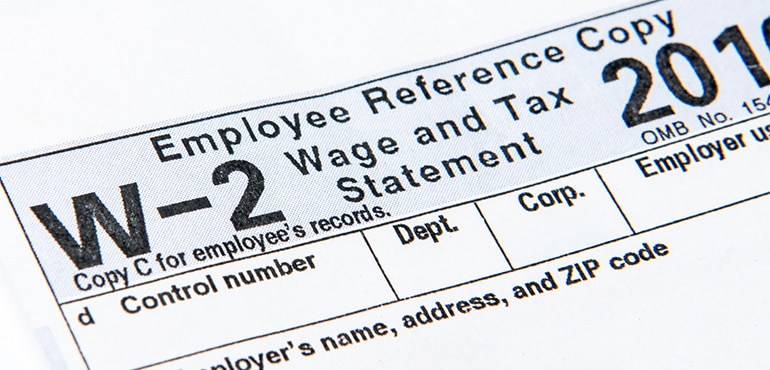W-2 Spoofing Scam Lawyer
A W-2 spoofing scam lawsuit may be an option if your W-2 tax information was negligently released by your employer to criminals and other nefarious individuals as the result of a phishing scam. There is a basis for pursuing financial restitution from your employer since there is an implied promise made by most employers, especially large companies, to keep sensitive personal information of their employees confidential. This promise is implied, and extremely important, because employees are typically required to provide their employer with sensitive information such as their Social Security number, home address, etc. in order for the employer to create a W-2 form. If an employer provides this personal information to a scammer phishing for such data, then a breach of that promise has occurred by their unauthorized release of this sensitive information.
Affected employees may be able to file a lawsuit to pursue financial restitution for their harms and losses with the help of a W-2 spoofing scam attorney.
For more information, contact the Attorney Group. Our legal team offers free, confidential, no obligation consultations to all prospective clients. We are here to help answer your questions, and if you choose to pursue a case, we will be happy to connect you with an affiliated W-2 phishing scam lawsuit attorney/lawyer who can assist you throughout the legal process.
What Is in a W-2 Statement?
The reason scammers pursue W-2 statements is because they contain a proverbial treasure trove of sensitive personal information that can be used and abused on the dark web. A W-2 statement typically lists your annual wages paid and withholdings for income taxes, Social Security and Medicare. In addition, a W-2 statement routinely includes your full name, Social Security number and primary mailing address. Scammers can turn around and use this information to steal your identity, open bank accounts, and file fraudulent tax returns.
Businesses Typically Targeted in W-2 Phishing Scams
In many instances, scammers will target businesses that feature large, transient pools of employees. For example, it is common for temporary staffing agencies, large chain restaurants, casinos, and shipping and freight companies to be the targets of W-2 phishing scams.
What is Phishing?
Phishing is an online scam where criminals send an email that appears to be from a legitimate company asking you to provide sensitive personal information. Oftentimes, the email contains a link that claims to take you to a reputable company’s website to fill in your information. In other instances, like the W-2 phishing scam, the dishonest and illegal tactics are more pervasive. The scammer will present to be a colleague asking for W-2 information to help complete a project during tax season.
How Does a W-2 Spoofing Scam Work?
The IRS revealed how this scam usually works. First, the nefarious scammer will send an email posing as a company executive. In many instances, the email will begin with a banal question like, “Hey, you in today?” Before you know it, the scammer will ask for a full list of employees and their W-2 statements.
This phishing scam, among others, has proven to be surprisingly effective. For example, the IRS estimated that close to 600,000 tax returns were filed fraudulently. In 2016, between $1.68 billion and $2.31 billion was reportedly paid out in refunds that were claimed by identity thieves and scammers.
W-2 Spoofing Scam Lawsuits
The basis for taking legal action when W-2 information has been negligent released through a phishing scam is rooted in the fundamental obligation that an employer must take reasonable steps to protect the personal information of their employees. As a result, when an employee’s sensitive personal information is inadvertently disclosed to a nefarious third party without the consent of the employee, such disclosure constitutes a breach of an employer’s duty to protect that information.
How a W-2 Spoofing Lawyer Can Help
If you or a loved one suffered a financial injury and/or identity theft after your W-2 information was negligent released to a scammer by your employer, the law enables you to pursue financial restitution for your harms and losses. Victims of this scam are encouraged to seek the counsel of a skilled and experienced W-2 spoofing scam lawyer to learn more about their legal rights and potential civil remedies.
The Time You Have to Pursue a Claim is Limited. Contact Us Today.
For more information, contact Attorney Group. After you contact us, an attorney will follow up to answer questions that you might have. There is no cost or obligation to speak with us, and any information you provide will be kept confidential.
Please note that the law limits the time you have to pursue a claim or file a lawsuit for your W-2 phishing injury. If you think you have a case, you should not delay taking action.






